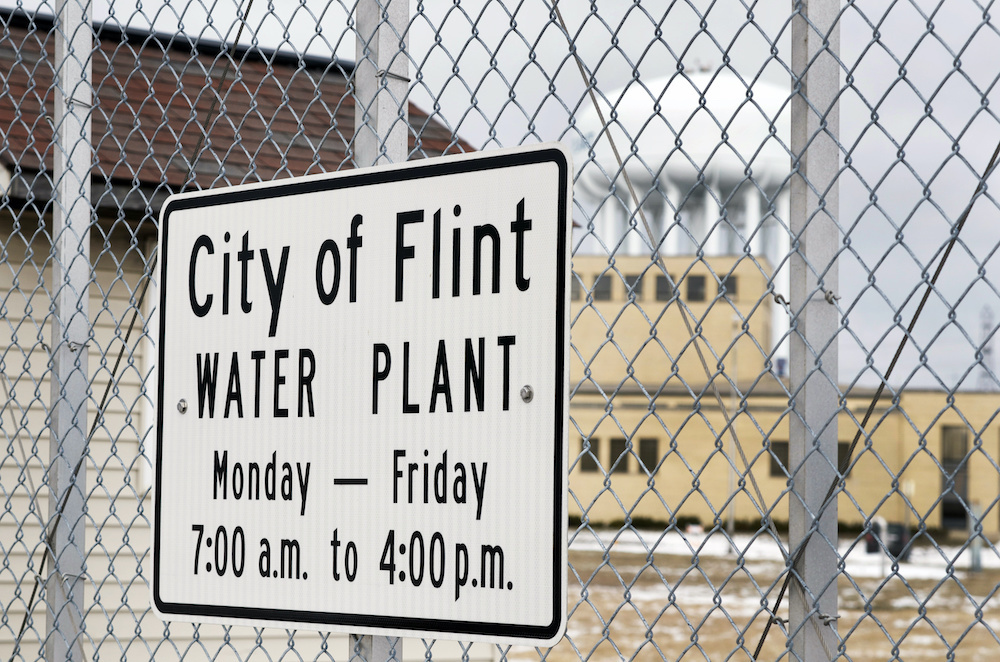ANN ARBOR, Mich. (Legal Newsline) - Calling it “a remarkable achievement,” a federal judge approved a $620 million settlement over lead contamination in the Flint water system, reserving until later approval of plaintiff lawyer fees that could consume a third of the money.
In a 178-page order issued Nov. 10, U.S. District Judge Judith Levy complimented the scores of lawyers and team of court-appointed mediators who negotiated the settlement with the state of Michigan and several other defendants that will award payments to children and others who were exposed to excess levels of lead in city water. Flint’s municipal water system became contaminated after the city mismanaged a switch from the Detroit water system, allowing lead pipes to corrode and release the toxic metal into drinking water.
Plaintiff lawyers from around the country quickly descended on Flint, signing up thousands of clients to sue the city, the state and other entities they blamed for the crisis. The litigation became acrimonious as the lawyers fought among themselves over control of the case and side issues including a controversial bone lead test that the Napoli Shkolnik law firm charged non-clients $500 to use and objectors said exposed claimants to excess levels of radiation.
Plaintiff lawyers have asked Judge Levy for some $200 million in fees, or 32% of the total, citing their “remarkable result.” In her order approving the settlement, Judge Levy also called it “a remarkable achievement for many reasons,” including because it provides compensation to every claimant regardless of whether they belong to a class action or have individual lawyers. Michigan taxpayers will foot nearly all the cost of the settlement.
The mediators said they spent more than 2,000 hours on the case, working with as many 50 lawyers at a time. The settlement was announced in August 2020, but lawyers spent months more wrangling over the “compensation grid,” or how much money would flow to individual claimants and businesses.
Lawyers for the state were actively involved in the negotiations, beyond simply ensuring taxpayers paid the lowest possible amount, the judge wrote. Quoting one of the mediators, she said the state’s “goal and interest in this settlement has never been just to pay money and walk away from the City of Flint. Very much the opposite.”
A claims administrator will oversee payments to claimants in six groups, including minors, adults, property owners and businesses. Children six and under will get 65% of the money, 7-10 year-olds will get 10%, 12-17 year-olds 5%, adults 15%, and $35 million will be set aside for future claimants. Property owners and businesses will get 3.5%.
Within the groups are 30 subcategories, including people with excess lead levels, children with cognitive deficits, women who suffered miscarriages and people who were exposed to lead-polluted water but have no other proof of exposure.
More than 50,000 people submitted claims by the March 29 deadline.
“This is particularly remarkable because the City of Flint’s population is estimated to be less than approximately 100,000, so this means that over half the current population of Flint is participating in the settlement,” the judge wrote.
The court received less than 150 objections, the judge said, representing 0.2% of claimants.
The judge said she will decide attorneys’ fees and objections in a separate order.
The judge addressed at length complaints about bone lead testing, which some lawyers said put their clients at a disadvantage. The Napoli firm used of a Thermo Fisher XRF scanner despite a letter from the company saying their device has never been marketed for use on live patients.
The judge dismissed the letter as “an attempt by Thermo Fisher to shield itself from litigation that may arise, ironically, because of the safety-related accusations made by objectors in this litigation.”
The judge also said there was nothing improper about using a nonapproved test to obtain compensation because nobody had to use the bone lead scan and it doesn’t guarantee anybody will get more money.
